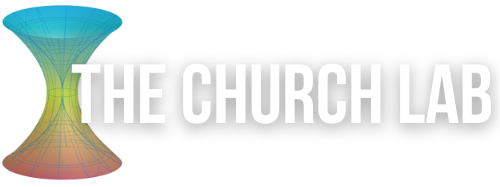A guest blog-post by Church Lab participant, Stephen Cinti
I grew up in a very typical American Christian church. I was raised to believe that having faith in Jesus was the the only “right” thing to do or the only “one way.” I was also raised to believe that Christians are the only happy people and that if anyone is doing something that was bad, a common remark I’d hear was, “They really need Jesus in their lives.”
Like a lot of fellow millennials, I got pretty disenchanted with the Church and contemporary church culture by the time I was in my early 20s. Though, I feel like that went a little differently for me than what I hear from other millennials. While most of my peers left the Church because they felt let down, mad at God, bitter, hurt, or any number of things like this, I mostly got to a point where I felt like I was forcing myself to go along with it. Most of the hurt and bitterness for me was more directed at specific people and not at the Church or at God. Initially, I started to feel this hurt directed at the Church, but then quickly noticed that I felt the same anger and bitterness towards an equal amount of people that weren’t churched at all. This led me to be bitter at closed-mindedness in general, rather than solely at religion.
This put me in a very awkward position (and I still feel this awkwardness quite a bit). It kind of brought me to a position where I didn’t resonate with what was going on in the Christian Church anymore, but at the same time I wasn’t angry or bitter at it. I’ve been involved in church long enough to understand and not be hung up on the common attacks that angry atheists usually usually throw at Christians, so that wasn’t an issue for me. It was more like I just connected with a different type of spirituality than what was being presented to me at the time.
I began to find way more internal peace and continuity through personal meditation and the willingness to embrace uncertainty. I found these things to have way more noticeable benefits to my life and my interactions with those around me than I ever found through trying to force things to work for me. I still feel very awkward when people ask me to explain this to them or challenge its validity. Maybe someday I can find words to help explain this, but that’ll have to be a later time. Right now, all I can say is that I’m in the most genuine and true-to-myself place than I’ve ever been. I’m also in a place that is way more freeing and true to my own personal convictions.
The other day I found the statements below written on a piece of paper. I don’t remember exactly when I wrote them; I think it was a year ago or so, but I do know that they were written when I was in a place of sincerity and probably written when I was feeling helpless about someone challenging the validity of myself.
I’m very comfortable in not having any certainty about anything religiously. I’m very comfortable, and kind of feel a drive to embrace the idea of anything, or accept the absence of anything. Frankly, the only reason I ever feel like I need to have a definitive stance on things is the fear of judgement from other people and that they’ll not understand how much the above statement means to me, or judge it as just a “cop out” or as “being spiritually immature” or something along those lines.
I’m very serious about my spirituality, and how it’s very much an internal thing. I’m really starved for people to just encourage me to have the journey that I feel I’m led to have, even though it’s a very internal one, and appears to be very simple.
The second half of this blog post can be found here on Stephen’s blog, Attempting to Be Wise.








